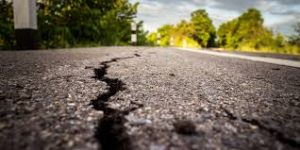Earthquake Swarm:

A state of emergency has been declared on Greece’s Santorini and the nearby islands of Ios, Amorgos, and Anafi after a swarm of undersea earthquakes this month.
- It occurs when multiple seismic events of comparable intensity strike a small area in relatively quick succession.
- It involves a series of many (sometimes thousands)low-intensity earthquakes without a discernible main shock that can occur over weeks in active geothermal areas.
- When seismic energy piles up inside the Earth and is released in small amounts from certain points, such a series of earthquakes can occur.
- In volcanic environments, this can be fluid released from deeper magma or circulating within active geothermal areas (in volcanic areas such as the Taupō Volcanic Zone).
- The earthquakes triggered by fluids occur as fault slip on the cracks and faults through which the water is moving.
- Magma movement can also act as the ‘driving mechanism’ for swarms, creating the earthquakes as magma-filled cracks push their way through the Earth’s crust.
- In such a case the earthquakes commonly occur near the crack tip (ahead of the magma where the crack is starting to open), or off to the side of the crack.
- A slow-slip event is essentially an earthquake in slow-motion, and typically involves centimetres to tens of centimetres of movement along a fault, over weeks to years.
- We commonly see slow slip events at the Hikurangi subduction zone, usually at least one or two per year




